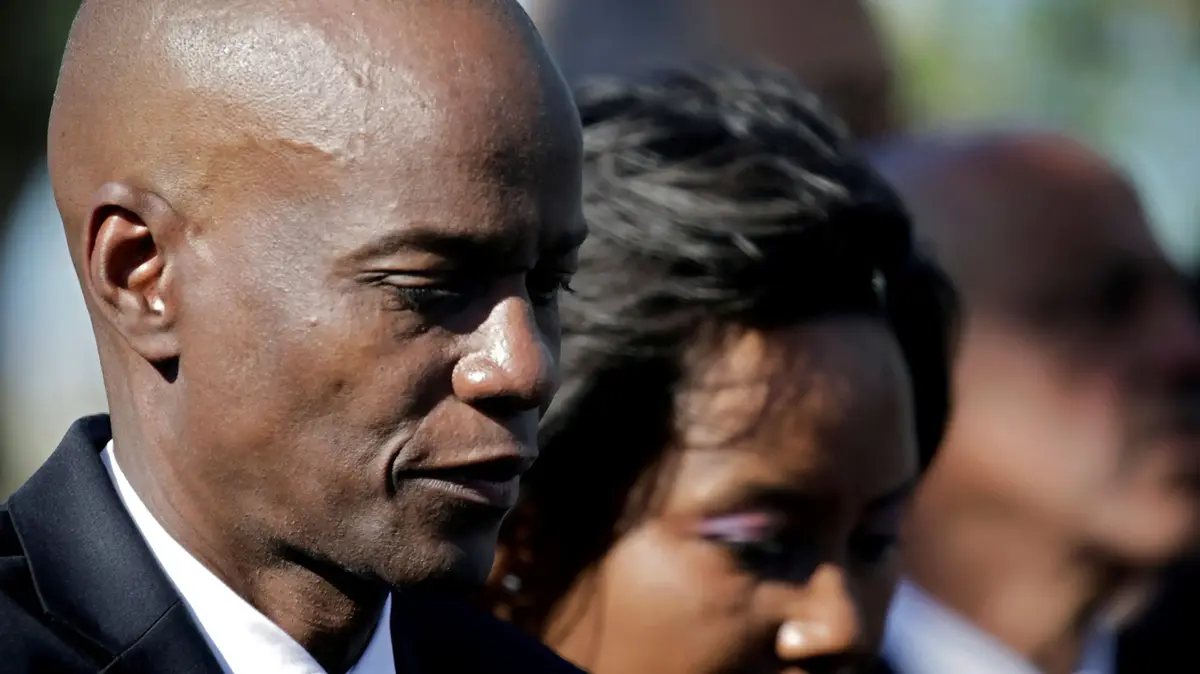Icon: enlarge
Stephan Ernst enters the courtroom
Photo: Kai Pfaffenbach / dpa
When Stephan Ernst came to the Wiesbaden correctional facility, he was 20 years old.
Word quickly got around that he was a Nazi.
This is how he describes it himself on the 27th day of the trial before the Higher Regional Court in Frankfurt am Main.
He felt threatened by fellow prisoners with a migration background, above all by his cell neighbor, who is said to have offered him to leave him alone - for sexual favors and money.
According to Ernst, he saw no other way out than "breaking free".
He broke off the leg of a metal chair in his cell, waited for an explanation and then attacked the detainee in the neighboring cell.
"Was he seriously injured afterwards?" Asks chairman Thomas Sagebiel.
"He was badly injured," replied Ernst.
It is one of many brutal attacks that the alleged murderer of the Kassel District President Walter Lübcke has to describe again in detail 27 years later.
The State Security Senate wants to get an idea of the personal circumstances of the main defendant in this case.
Ernst describes his school career, the move from Wiesbaden to Taunusstein, where the parents fulfilled their long-cherished dream of owning a home and he, according to his perception, fell by the wayside.
"I felt put back, pretty much alone," says Ernst.
A feeling that intensified when the parents got dogs.
Fights at school, pipe bomb near an asylum shelter
His alcoholic father taught him his hatred of foreigners.
This is how Stephan Ernst had his defense lawyer Mustafa Kaplan explain it as part of his confession.
In elementary school his father forbade him to play "with Kanaks".
An announcement that the son, who wanted to please the father, internalized until he rushed along.
It wasn't just words.
At the new school, Ernst felt "harassed", as he says, by a group of students with a migration background from the parallel class.
Accordingly, there were arguments and fights, his father allegedly indoctrinated rejection he describes as "irrepressible hatred of foreigners".
Stephan Ernst was 15 when he tried to set fire to a house where several Turkish families live.
At 19, he rammed a knife in the back and chest of a Turkish imam.
A year later, Ernst deposited a pipe bomb near an asylum shelter.
He was sentenced to five and a half years in prison.
While in custody he claims to have become radicalized and, after his release, to have joined the neo-Nazi scene.
First he visited the NPD regulars' tables, then he found a connection with Free Comradeships, with whose supporters he drove to demonstrations, memorial marches and actions against political opponents.
Their goal: the overthrow of the political system.
He wanted to "stand up" for his country, says Ernst.
Even with violence.
One of the people he met is now sitting in the dock less than two meters from him: Markus H., a neo-Nazi known to the security authorities who has no entry in the central federal register.
He is charged with complicity in the murder of Walter Lübcke.
Ernst remains: Without H. he would not have killed Lübcke.
In 2009, he claims to have broken away from the scene and only happened to see right-wing comrades in town.
It was only after a few years in 2012 or even 2013 that Markus H. stepped back into his life as a new work colleague, that he surrendered again to his right-wing extremist sentiments - and lived them out.
But there are doubts about that.
On the canvas in front of the wood-paneled wall of the hall, the court shows a photo of a solstice celebration on June 18, 2011 in Ansbach in Thuringia, organized by Thorsten Heise.
The militant right-wing extremist is a leading activist in the free comradeship scene and a member of the NPD federal executive committee.
It's a group picture, far right: Stephan Ernst with a beer bottle in his hand.
He admits to having held a position on a so-called home defense at Heise after political opponents announced their arrival.
Ernst also admits to the psychiatric expert Norbert Leygraf that he already went to archery with colleagues in March 2011.
A hobby that he wants to have found through Markus H.
So was his abstinence from the scene shorter than claimed?
Did she even exist?
How much does H. actually have to do with Ernst's radicalization?
His daughter keeps her distance
They are essential questions for this process.
Ernst looks annoyed, he emphasizes: "It was only through H. I took up activism again."
Before that, he had never had anything to do with firearms.
The court, the federal prosecutor's office, the accessory prosecution - their skepticism is evident.
This also applies to Ernst's initial contact with the drop-out program "IKARus" of the Hessian State Criminal Police Office.
A first conversation took place, says Ernst.
But how has his attitude changed?
When judge Christoph Koller asks the 47-year-old to get to know his wife, the mood changes.
Seriously crying, needs a break.
He later explains that he met her while on leave on the train.
He also gets emotional when senior public prosecutor Dieter Killmer asks how his hatred had affected the family and how the relationship is today.
Ernst cries again.
His wife stands by him and wants to stay with him, says the defendant.
"My son as well, my daughter has distanced herself from me, I understand that completely."
It is the best that she can do in her situation.
Killmer addresses what everyone in the room thinks: "How do you want to deal with guilt? You are very emotional when it comes to family and very controlled when it comes to the murder of Dr. Lübcke."
Ernst continues to cry.
He doesn't know how he can ever make amends for what he did to the CDU politician and his family.
"I don't know how to deal with it."
Icon: The mirror








